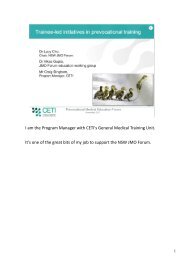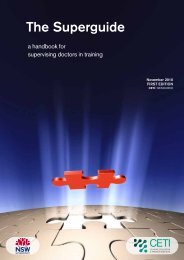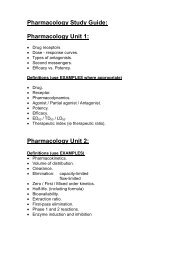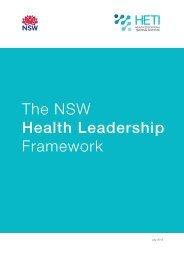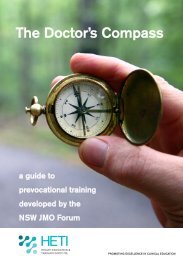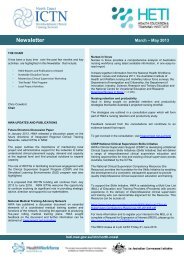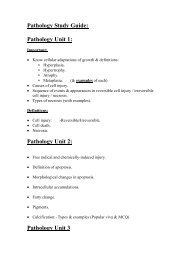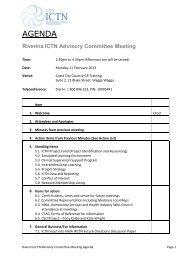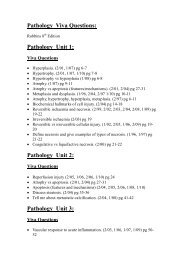a handbook for supervising allied health professionals - HETI - NSW ...
a handbook for supervising allied health professionals - HETI - NSW ...
a handbook for supervising allied health professionals - HETI - NSW ...
You also want an ePaper? Increase the reach of your titles
YUMPU automatically turns print PDFs into web optimized ePapers that Google loves.
THE SUPERGUIDE<br />
Facilitating clinical supervision<br />
10<br />
The components that contribute to effective clinical supervision include:<br />
• understanding the roles and responsibilities of key individuals and organisations<br />
• setting the expectations of the supervisory relationship<br />
• using supervision contracts<br />
• maintaining supervision documentation<br />
• evaluating the effectiveness of supervision<br />
• setting learning goals<br />
• facilitating reflective practice<br />
• providing a culturally safe and respectful environment.<br />
Who provides clinical supervision<br />
Clinical supervision can be provided by senior clinicians, line managers, service managers,<br />
team leaders and external supervisors. Deciding who provides clinical supervision<br />
depends on the context, including the clinical setting, award requirements and the<br />
availability and skill mix of staff. It is acknowledged senior clinical specialists may find it<br />
difficult to access suitably experienced clinical supervisors.<br />
In some cases, supervision may be sought from external <strong>professionals</strong> or organisations,<br />
often on a fee-<strong>for</strong>-service basis, as well as or instead of supervision provided from within<br />
the organisation. The availability of external clinical supervision will depend on local policy<br />
and the context in which the clinician is working (eg, rural or in isolation).<br />
Roles and responsibilities<br />
Clinical staff and senior management have a responsibility to ensure high quality clinical<br />
supervision is occurring within Local Health Districts which is provided in a culturally<br />
safe and respectful manner. The following individuals play a key role in contributing to the<br />
governance of clinical supervision.<br />
Director of Allied Health: is responsible <strong>for</strong> the professional management of <strong>allied</strong> <strong>health</strong><br />
services in Local Health Districts and is the responsible officer <strong>for</strong> issues pertaining to the<br />
employment, progression and registration of <strong>allied</strong> <strong>health</strong> staff. The Director of Allied Health<br />
is responsible <strong>for</strong> ensuring that supervision processes are in place across Local Health<br />
Districts.<br />
Discipline-specific head: when appointed within a facility or Local Health District,<br />
the discipline-specific head may have both operational and professional oversight of<br />
<strong>professionals</strong> from that discipline in the facility/Local Health District. The discipline-specific<br />
head ensures that policies, procedures and appropriate systems of governance to promote<br />
supervision are in place and that supervision processes are evaluated and improved.



